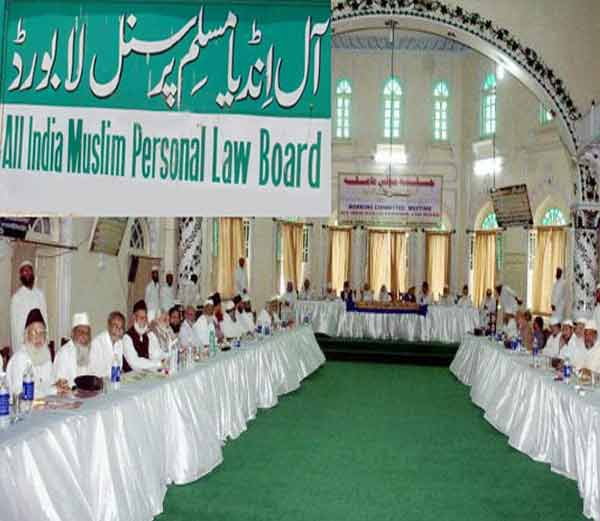With the Government Affidavit before the Supreme Court of India whereby it admitted that the Triple Talaq in Islam is a grave violation of the fundamental rights of equality and right to live with dignity of the Muslim women. This has evoked sharp criticism from several quarters including the All India Muslim Personal Law Board, Islamic Scholars and the pseudo secular political outfits.
While the Government has taken up a broad approach in this issue and has called for a nationwide approach the proponents of Triple Talaq have taken a much narrow view and have dismissed this initiative to provide justice to the Muslim women as an attempt to curb the autonomy of Islamic scholars and deny them the right to manage their religious affairs enshrined under Article 26 of the Constitution of India.
This has also been described as a covert move to pave way for enforcing Uniform Civil Code in the near future. One wonders how enactment of a Common Code is an evil when the same has been described as a positive directive for the State.
Dear Islamic Scholars,
This is an open letter to the same tribe making them aware of the actual constitutional position and how they should stop acting as a blockade in the process of ensuring gender justice for the women of their own community.
Kindly consider the following points:
No Constitutional infirmity:
As already reiterated the cardinal argument of Islamic Scholars has been that an attempt to regulate the laws relating to marriage and divorce would amount to hijacking the right of Islam as a religious denomination to manage its own affairs. This showcases the lack of understanding of the Constitutional scheme on this point among your fraternity. The fact remains that what Article 26 of the Constitution confers is a right to manage the ritualistic and ceremonial aspects of a religion and your domain is limited to determining the modes of worship, the appointment of religious priests, etc. The domain of law making on civil and secular aspects such as rights arising out of a marital bond, procedure and rules governing divorce, adoption, succession of property, etc. is entirely out of the domain of Article 26 of the Constitution of India and it is entirely the prerogative of the legislature to make such personal laws.
Being the citizens of this Nation you have to abide by the Constitution and the legal system. You cannot claim a parallel polity for your own community and demand that it be governed by community based (church made) laws rather than the Constitution of this Nation. The fact that purely misogynist Islamic customary practices such as Triple Talaq and polygamy still have the sanctity of law in the Indian context is a result of the fact that the State has not chosen to legislate on such matters until now. But this should not be taken to mean that the State does not have the power to legislate and regulate the Muslim personal law in fact it is the inherent power of the State to legislate upon such matters. The fact that the Government of India has finally decided to exercise the power that it possesses does not mean that it is acting in a dictatorial manner or taking away any of your rights.
Gender Justice for Islamic women:
The best way to judge a society is to look at the way it treats its women. If this principle is applied to the Indian context then the status of the Islamic community in India seems to be the most deplorable among all the communities. While other religious communities in general and the Hindu society in particular has shown the hunger to uplift the status of its women, the Muslim community seems to be lagging far behind.
While the Hindu edifice has undergone complete transformation in order to accommodate the interests of its women and in certain cases gives precedence to women over their male counterparts as far as property rights are concerned. Moreover, several social ills in Hinduism such as polygamy became a thing of past due to State interference way back in 1956 itself when the Hindu Marriage Act was passed. On the other hand, age old practices such as triple talaq and polygamy which have been rejected by most of the Islamic Nations themselves are still in vogue as far as India is concerned. Apart from this, the fact that a Muslim daughter is still entitled to only one third of her male counterpart’s share in the property of the intestate shows how Muslim women are made to bear two fold brunt in the sense that they are treated in an inferior manner compared to their male counterparts and at the same time are denied the rights that accrue to the Hindu females.
Dear Islamic Scholar, as reiterated by the former Prime Minister of India, Atal Behari Vajpayee, the misfortune of the day is that even the political outfits who are close to the Muslim community are not convincing them to bring necessary changes in their society so as to accommodate the needs of gender justice but such political outfits are only misguiding the Muslim community. You should now that such gross violation of fundamental rights of Muslim women cannot be tolerated on the name of “religious autonomy”. In case you fail to accommodate the needs of a modernizing society then the Government may very well go ahead with enforcing such necessary changes without taking you into confidence. It is in your greater interest to engage with the Government on this pertinent issue rather than harassing women of your own community and presuming it to be a matter of right.
A Well Wisher,
Just another citizen of India
